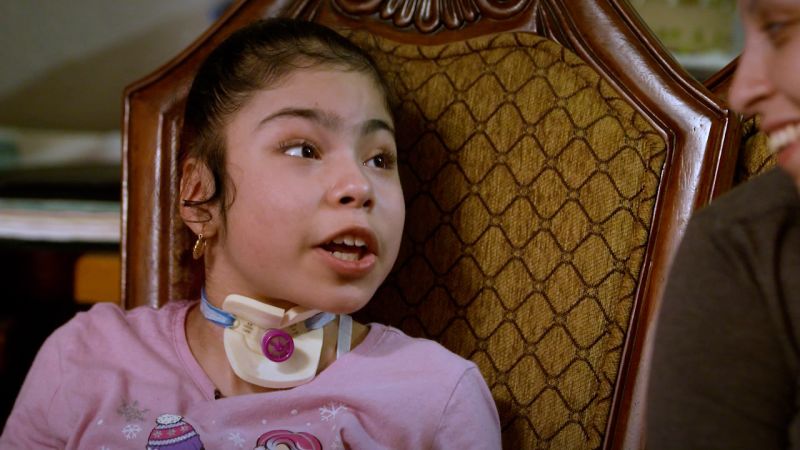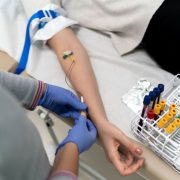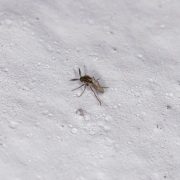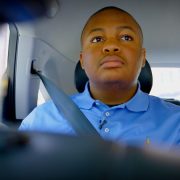Delayza Diaz didn’t use her voice for the first time until she was 9 years old.
For most of her life, she has communicated by vibrating the inner lining of her cheeks to form words, a process called buccal speech.
Her mom, Lucero Diaz, called it her squeaky voice.
“You had to pay really, really close attention to her to see what she was saying,” said Diaz, 34, who lives with her daughter in Salem, Oregon. Only family members could understand Delayza well.
“She had a tablet that she speaks for her, but she doesn’t like to use it because she says that she has her own voice that she can use,” Diaz said.
Delayza has a rare condition that causes a collection of birth defects that can affect the spine, upper airway and esophagus. Doctors estimate that it happens in 1 infant for every 10,000 to 40,000 who are born.
As with many people who have the condition, Delayza’s airway and esophagus, the tube that carries food to the stomach, had an abnormal connection, called a fistula.
She was born with “basically no opening through the voice box and no opening through the upper part of her windpipe, either,” said Dr. Derek Lam, a pediatric otolaryngologist at Oregon Health and Sciences University who has been Delayza’s doctor for 10 years.
Basically, he said, there was hard cartilage where the opening to her windpipe should be. “Most babies who are born with that actually don’t survive.”
On just her second day of life, Lam operated on Delayza to stabilize her airway.
The first priority was to repair the airway. “She was pretty unstable,” Lam said. For a time, her heart and lungs stopped working almost daily, and she needed to be revived. “And so I wasn’t so sure she was going to survive,” he said.
Eventually, he was able to get the abnormal connection fixed, “and she did great after that,” he said. She was finally able to go home to her family at 5 months of age.
Delayza could breathe with the help of a tube in her throat, but the cartilage also kept her vocal cords from being able to vibrate and make speech. There was no opening through them.
“She could have easily gone through her life” with the help of a breathing tube but no voice, Lam said. But he was determined to give her a better option.
He knew that people who lose their voice boxes to cancer can learn to speak using their esophagus.
“It’s kind of like basically burping and then generating voice by constantly burping. It’s called esophageal speech,” Lam said.
It was a noninvasive option that could avert the risks of surgery, but he couldn’t find anyone who knew how to teach esophageal speech to children.
Instead, they decided to do a rare and complex surgery to reconstruct Delayza’s voice box. It was a tough decision, Lam says, because of the risks involved.
In addition to producing speech, the vocal cords are the major protector of the airways during swallowing. If the surgery didn’t go just right, he could end up compromising her airway, interfering with her ability to swallow. That would increase the risk that food or liquid could get into her lungs and cause an infection.
Lam said he talked to Delayza’s family for years about whether it was the right decision and what the timing should be. They set a goal to do it before Delayza started school, but she was doing so well that they ultimately decided to postpone the operation.
Diaz said her daughter really struggled when her classes moved online during the Covid-19 pandemic. Delayza hates sitting still, and virtual classes just made communication even more difficult for her.
“She gave up on school,” her mom said. Even now, in the fourth grade, it can be difficult.
They finally did the surgery in fall 2022, Lam says, just before Delayza’s 9th birthday.
The operation took about eight hours. He removed the abnormal cartilage at the top of her windpipe, drilled a hole between her vocal cords so they could move and used additional cartilage from one of her ribs to build her a new, bigger voice box, which he attached to the top of her windpipe.
He also inserted a round tube called a stent to hold the new voice box open. The stent stayed in for nine months while everything healed, to ensure that no scar tissue would form and close off her throat.
One of Delayza’s vocal cords is now working, enough that she can – for the first time – learn to speak normally.
“She has one vocal cord that works well now and one that doesn’t, but seems like that she’s able to compensate enough with the one that does work, that we can still achieve the goals that we want,” Lam said.
Lam said Delayza had been working with voice therapists for a couple of months before he saw her again and heard her speak for the first time.
“That was a really a really cool moment, a really exciting moment for me,” he said.
One of the first phrases she learned to say was “I love you, Mom.”
“She would use her hands to say to say ‘I love you,’ ” Diaz said. “When she said it, it was just exciting.”
Delayza’s voice is still low and raw.
It still surprises her mom to hear it around the house. “I’ll just hear her and like ‘Whoa. Is that you again?’ ” Diaz said. “I forget she can have like a strong, older person’s voice.”
Even their dog Nico, a chihuahua/pit bull mix, is still getting used to it. He starts barking when he hears Delayza talk.
Lam said he’s hopeful it will improve with practice.
“She’s definitely way more intelligible and understandable and I think can clearly communicate better when she uses that her new voice compared to the way that she spoke before,” Lam said.
Thanks to the surgery, she might also get the plastic tube that helps her breathe – a tracheostomy tube – taken out of her throat some day.
Ultimately, Lam is hopeful that this new voice will change the trajectory of Delayza’s life.
“Even from a safety standpoint, I mean, if you are in a situation where you need to call out for help … if no one can understand what’s she’s saying or what she needs, that could be a problem,” he said. “I think it certainly can open a lot of doors for her that maybe would have stayed closed before.”





